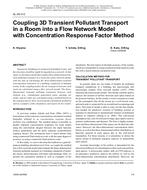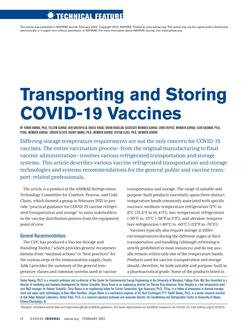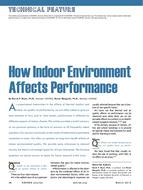Temperature and sensory indices of human response to the thermal environment are often expressed in terms of the known response in a controlled laboratory environment, as a standard. The three rational indices of this type to be considered are (1) ASHRAE’s Standard Effective Temperature (SET*) Index, defined as the equivalent dry bulb temperature of isothermal environment at 50% RH in which a subject, while wearing clothing standardized for activity concerned, would have the same heat stress (skin temperature Tsk ) and thermo-regulatory strain (skin wettedness, w) as in the actual test environment; (2) Fanger’s Predicted Mean Vote (PMV) Index, defined in terms of the heat load that would be required restore a state of “Comfort” and evaluated by his Comfort Equation; and (3) Winslow’s Skin Wettedness Index of “Thermal Discomfort” (DISC) defined in terms of the fraction of the body surface, wet with perspiration, required to regulate body temperature by evaporative cooling. The classic difference between PMV and DISC as predictors of warm discomfort occurs at very high and very low humidity but both lead to essentially the same judgment at average humidities (40-60% RH or 1-2 kPa). A new index PMV* is proposed for any dry or humid environment by simply replacing operative temperature T° in Fanger’s Comfort Equation with SET*. The use of PMV* as a sensor of heat stress and strain, is illustrated for typical HVAC situations and with a new Comfort-Humidity psychometric chart for indoor environments.
Units: Dual
Citation: Symposium, ASHRAE Transactions, 1986, vol. 92, pt. 2B, Portland, OR
Product Details
- Published:
- 1986
- Number of Pages:
- 23
- File Size:
- 1 file , 2.1 MB
- Product Code(s):
- D-PO-86-14-1


